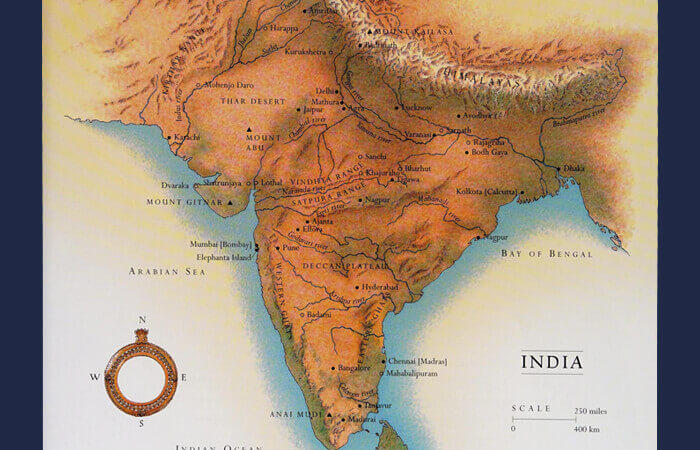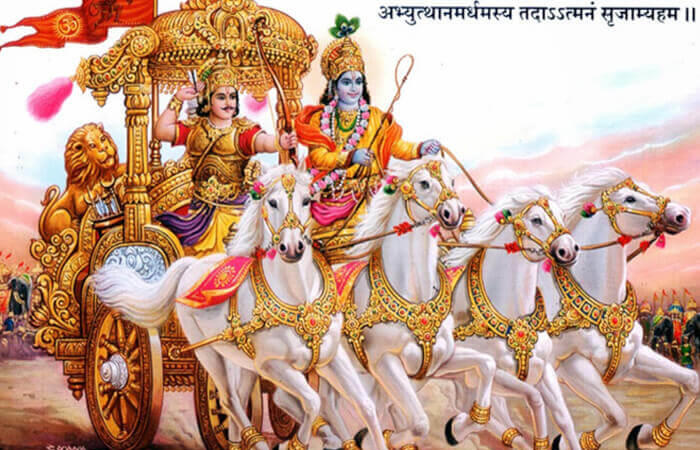Sarojini Naidu (Nightingale of India)
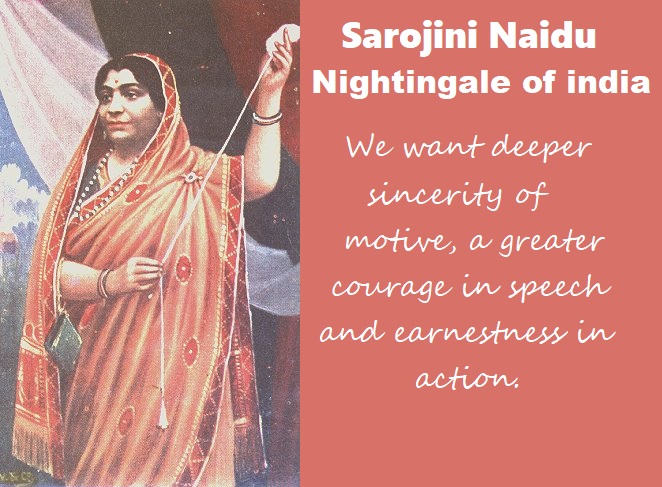
Sarojini Naidu was a famous poet, freedom fighter, and great speaker of his era. She was also known by the name of Nightingale of India and India Kokila. She was the first woman president of the Indian National Congress. After independence, she became the first woman governor of Uttar Pradesh.
Early life
Sarojini Naidu’s full name was Sarojini Chattopadhyaya, She was born on February 13, 1879. His father, Aghornath Chattopadhyay, was a scientist and educationist. He founded Nizam College of Hyderabad. His mother Varada was a poetess and used to write poems in the Bengali language.
Sarojini was the eldest of eight siblings. One of his brothers, Virendra Nath was a revolutionary and a brother Haridranath poet, story writer, and artist. Sarojini Naidu was a highly acclaimed student and was fluent in Urdu, Telugu, English, Bengali, and Persian. At the young age of twelve, he passed the matriculation examination. He had secured first place in the Madras Presidency.
His father wanted him to be a mathematician or a scientist, but his interest was in poetry. His poetry impressed Hyderabad’s Nizam Mir Mahbub Ali Khan who gave her a chance to study first at King’s College London and later at Girton College, Cambridge.
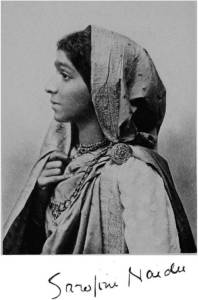
At the age of 19 she was married to Paidipati Govindarajulu Naidu, a physician, the couple had four children Jayasurya, Padmaj, Randheer, and Leilaman.
She joined Indian national movements during the partition of Bengal in 1905. During this movement, he met Gopal Krishna Gokhale, Rabindranath Tagore, Mohammad Ali Jinnah, Annie Besant, CP Rama Swami Aiyar, Gandhiji, and Jawaharlal Nehru.
Her first collection of poems was The Golden Threshold, published in the United Kingdom in the year 1905. She helped to establish the Women’s Indian Association and raised her voice for women’s empowerment and women’s rights in India and made women aware everywhere from the state level to small cities.
She presided over the annual session of the Indian National Congress in Kanpur in 1925, and in 1929 also presided over the East African Indian Congress in South Africa.
In the Civil Disobedience Movement she played a leading role, she also went to jail with Gandhiji. She had to remain in jail for 21 months and suffered many tortures, She was arrested in 1942 during Quit Movement Movement.

After independence, she became the first Governor of Uttar Pradesh and settled in Lucknow, and played his political duties through courtesy and glorious behavior.
She died in Lucknow on 2 March 1949 due to a heart attack. Sarojini Naidu lived life by her own words “As long as I have lived, as long as blood flows through this arm of mine, I shall not leave the cause of freedom…I am only a woman, only a poet. But as a woman, I give to you the weapons of faith and courage and the shield of fortitude. And as a poet, I fling out the banner of song and sound, the bugle call to battle. How shall I kindle the flame which shall waken you men from slavery…”.
The then prime minister of India Jawaharlal Nehru said “I doubt whether India will or can produce another Sarojini… Here was a person of great brilliance. Here was a person, vital and vivid. Here was a person with so many gifts, but above all, with some gifts which made her unique”. In 1964 on the occasion of the 85th Birth Anniversary of Sarojini Naidu, a special stamp was issued to pay tribute to her.
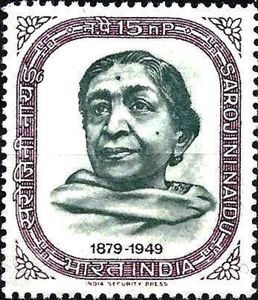
Her work in poetry
1. The Golden Threshold, published in the United Kingdom in the year 1905
2. The Bird of Time: Songs of Life, Death & the Spring, published in London in the year 1912
3. The Broken Wing: Songs of Love, Death, and the Spring, including “The Gift of India” in the year 1917
4. Muhammad Jinnah: An Ambassador of Unity in the year 1919
5. The Sceptred Flute: Songs of India, Allahabad: Kitabistan, posthumously published in the year 1943
6. The Feather of the Dawn, posthumously published, edited by her daughter, Padmaja Naidu in the year 1961
7. The Indian Weavers was published in the year 1971
Top 10 Quotes by Sarojini Naidu
1. A country’s greatness lies in its undying ideals of love and sacrifice that inspire the mothers of the race.
2. The sense of justice is one of the most wonderful ideals of Islam because as I read in the Qur’an I find those dynamic principles of life, not mystic but practical ethics for the daily conduct of life suited to the whole world.
3. We want deeper sincerity of motive, a greater courage in speech, and earnestness in action.
4. To quench my longing I bent me low by the streams of the spirits of Peace that flow in that magical wood in the land of sleep.
5. Oh, we want a new breed of men before India can be cleansed of her disease.
6. My husband is exceedingly busy. For some time the talk of his going had been slack, but just now again there seems to be a move to get him sent to the front!
7. I am not ready to die because it requires infinitely higher courage to live.
8. When there is oppression, the only self-respecting thing is to rise and say this shall cease today because my right is justice. If you are stronger, you have to help the weaker boy or girl both in play and in the work.
9. I say it is not your pride that you are a Madrasi, it is not your pride that you are a brahmin, it is not your pride that you belong to south India, it is not your pride that you are a Hindu, that it is your pride that you are an Indian.
10. One needs a Seer’s Vision and Angel’s voice to be of any avail. I do not know of any Indian man or woman today who has those gifts in their most complete measure.


